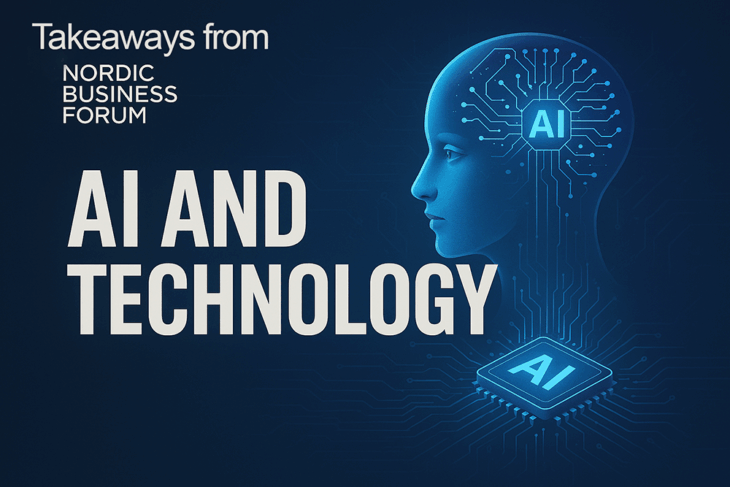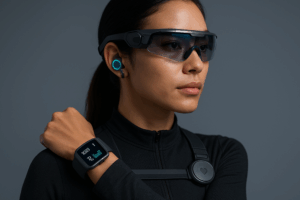
The transformation and fusion of technology – are we making or destroying our own future?
Vol 28, Issue 03, 26 September 2025
During this year’s Nordic Business Forum, there were many discussions related to current AI technology, new and surprising AI scenarios, the fast pace, unrelenting progression, optimism and pessimism, and generational gaps in technology in even more ways than before. There was talk of AI taking jobs as companies start reducing unnecessary staff with advances in the technology and how it can be used. There were even examples of whole degrees being taught and awarded through AI and even a church that has been founded on AI albeit running the existing religion.
I grew up just at the awakening of the digital age, with the invention of the microprocessor laying the foundation for personal computing. Early computers were room-sized, expensive, and limited to large institutions such as universities. I was first introduced to computing at school in the late 70s, where we learned basic programming by dialing into the computer at Cardiff University for our precious 2 hours per week allocation. By the 80s, personal computers began entering homes and offices, changing productivity and education. I remember at Kodak how the admin office installed an IBM desktop word processor, with the intention of doing away with the then existing electronic typewriters. This prompted fear among the older staff immediately thinking the were being replaced by computers – never thinking that they would be still needed to still work those new machines.
Moving on to the late 90s, we saw the rise of the internet, and I remember industry sceptics saying how it was just a fad and that nothing would come of it – certainly it could not be exploited commercially as how could anyone sell anything via the internet? With the plethora of “Hello World” popping up, things started quickly changing and many creative minds saw how the existing connections and sharing of data could suddenly benefit more than just academics and also be exploited in surprising ways.
Slowly we moved on to the increased uptake of mobile communication in the 2020s, and with the introduction of smart phones and advanced infrastructure, the industry quickly established itself as normal. With the introduction of apps, social media, instant connectivity, and “The Cloud”, we saw data storage and access being done remotely, thus transforming business operations and an increase in personal storage of data. With the realization of artificial intelligence, machine learning, smart devices and wearables, and the IoT (Internet of Things), we have accepted automation and real-time monitoring in our everyday lives and literally have our lives and the whole world in our pocket or more often now – on our wrist.
Today’s advanced generative AI and fast uptake by the younger generation, we have to remember that technology is not just a tool—it’s a partner in creativity, decision-making, and problem-solving. However, we cannot lose sight of our humanity and our future – are we slowly creating a future where human intervention and creativity is not needed? Will we actually lose the skills that make us human? Will we stop thinking for ourselves if AI can do it better – or at least faster with less effort?

We need to start imagining our futures and see how we can make our future more secure and harmonious. The future challenge will be to harness technological advancements ethically, morally and inclusively, ensuring that technology serves humanity – not the other way around.
Who knows what might happen if or when AI itself becomes the new religion – or has it happened already? Are we the next phase of AI or is AI the next phase of us?
Images generated with AI prompts…
- IBSEN meeting November 2025 – Split, Croatia - 12th December 2025
- Wondering where to get lunch in Kouvola town? - 5th December 2025
- IBSEN Realgame – an international ERP/SCM experience for students - 28th November 2025
